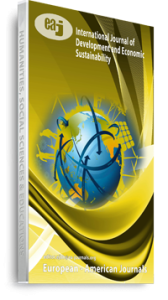Economic growth experienced in Nigeria over the past decade has been primarily impacted by dwindling foreign exchange earnings. These earnings are dictated by an increasingly monolithic economy with an almost singular dependence on crude export proceeds. While various options for diversifying the economy, enhancing productivity as well as creating multiple sub-national and national income streams, abound, not much has been done towards harnessing and optimising these alternative options, hence a national Gross Domestic Product (GDP) that is impeded by regular fluctuations that have come to define the global oil market. Blue Economy (BE) as defined by the World Bank underscores, ‘the sustainable use of ocean resources for economic growth, improved livelihoods, and jobs while preserving the health of the ocean ecosystem’. In its hypothesis, this paper posits that BE presents a viable and alternative path to Nigeria’s economic diversification and growth in a manner that is not damaging to the environment and ecosystem, but boosts empowerment, job and wealth creation as key indices of sustainable development and economic growthIn its literature review, the paper connects and underlines typical literature backed cases of BE facilitating sustainable development and economic growth. Its analysis derived from global perspectives, insights and experiences, seeks to situate and apply BE prospects within the Nigerian context. These feeds the eventual proffered recommendations. In its recommendations, the paper puts forward steps that underscore a path to harnessing the Nigeria’s BE in such a way as to ensure sustainable development, and that seeks to satisfy current socio-economic diversification and growth needs, boosting wealth creation and empowerment while ensuring safe climate and environmentally friendly practices.
Keywords: Nigeria, Sustainable Development, blue economy, economic growth

